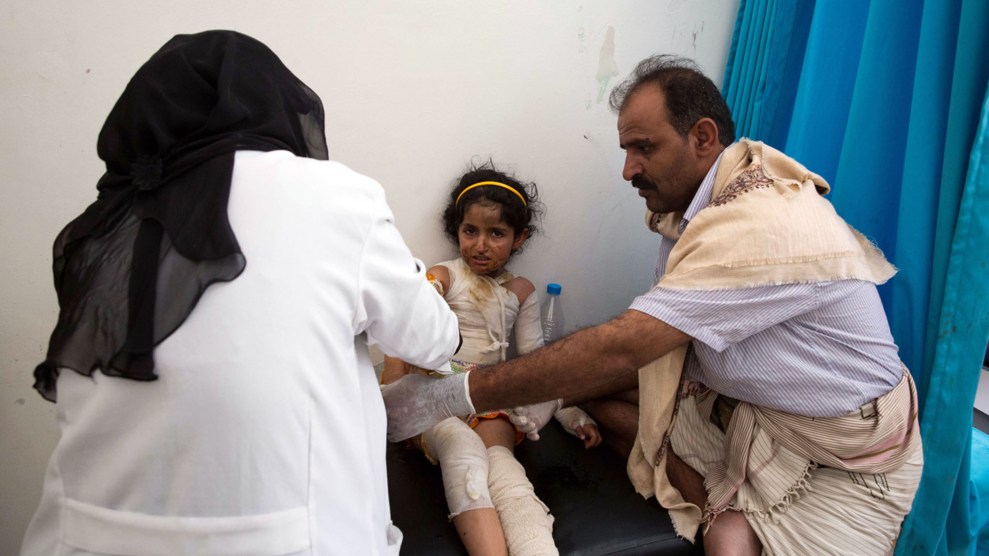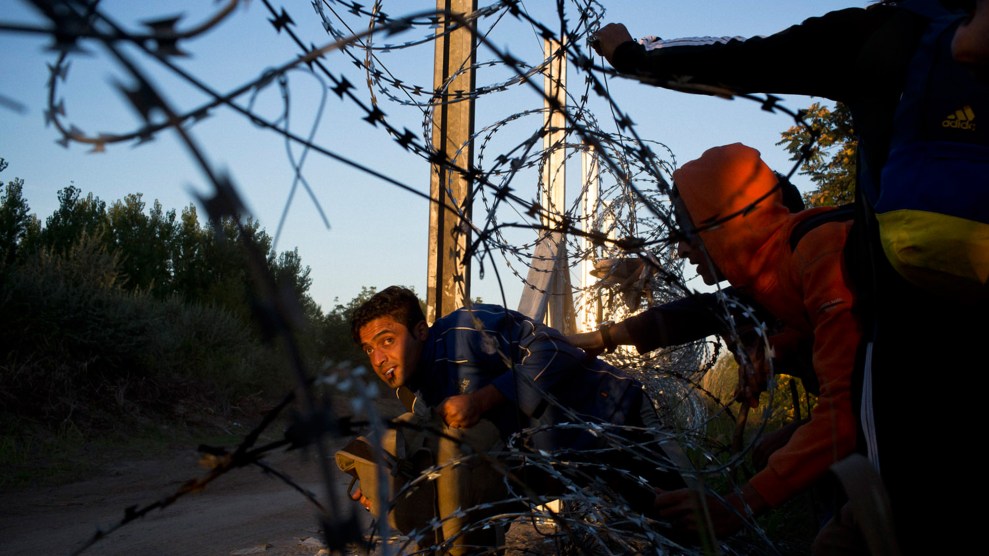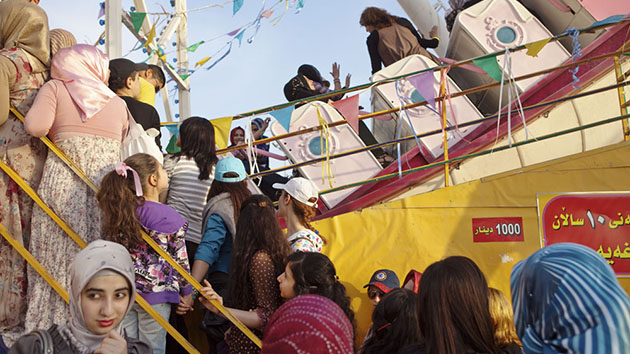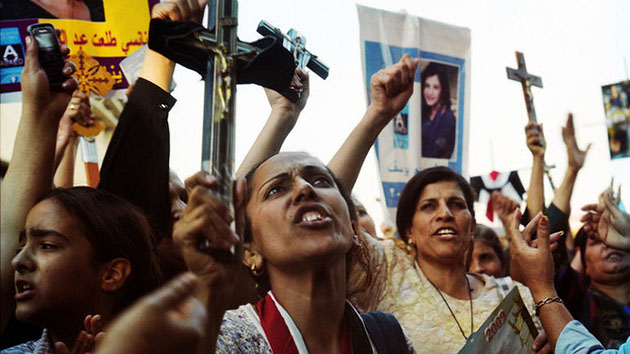
The death of four Americans in a terrorist attack has focused attention on Benghazi in recent weeks, but while violence and political instability mark today’s Libya, there is much more to be seen among the people and culture emerging from decades of life under Qaddafi. This past summer, photojournalist Ben Lowy—armed with the iPhone camera he is known to use so well—documented bombed out buildings, Libyan women voting in the first-ever democratic election, and more. Why didn’t he work with fancier gear? “Small mobile phone cameras are innocuous and enable a far greater intimacy with a subject,” Lowy says, noting that Libyans themselves have also done much to document their surroundings, thanks to the ubiquitous technology.

A Libyan teen runs through a flock of birds in the newly renamed Martyrs Square in the center of the Old City in Tripoli.

Wael, 28, from Tripoli, lives with his family in the remains of a small room in the Bab Aziza, Gaddafi’s former military and residential complex in the center of Tripoli. With little oversight and infrastructure, and the government yet to assert itself, former Gaddafi government buildings have been left open to looting, and in the case of the Bab Aziza, it has become a massive garbage dump and home to homeless Libyans.

A Cinderella blanket covers a parked car in the ravaged Bab Aziza, Gaddafi’s former military and residential complex where numerous Libyan homeless have taken up residence in Tripoli.

A photography stand, where families can pose on a couch with a live fawn, is erected and open for business in the newly renamed Martyrs Square in the center of the Old City in Tripoli.

Libyan Federalists scream “Long Live Cyrenica,” the ancient name of there state where Benghazi is based, as they flee an election polling station with voting cards and ballots to burn in Benghazi. The Federalists believe their city, where the uprising against Gaddafi began, will be under-represented in the new Libyan government.

Women wait in line to vote in the first free Libyan elections in decades in Benghazi, Libya.

Libyans rejoice with song and dance along the boardwalk of Benghazi after voting for the first time in more than 40 years.

Libyans rejoice with song and dance along the boardwalk of Benghazi after voting for the first time in more than 40 years.

Libyans set off confetti-filled fireworks at a house party a day after historic elections in Benghazi.

Samir, an Eritrean migrant shot in Kufra by a Libyan militia member during his trek through the desert lies on a mat in a migrant camp in Benghazi. The interim Libyan authorities have sequestered numerous migrants into DP (displaced persons) camps. Many complain about their living conditions and the lack of security from armed Libyan militias. They are virtual prisoners within the camp. “Ramadan won’t be hard,” said one Somali man, “we are already starving.”

Ali, 83, a Tawarghan IDP stands outside his tent in a secluded desert displaced persons camp near Benghazi. All residents were forced to flee. Many of them are now virtual prisoners in IDP camps set up throughout the country. Many Tawarghan men are still targets of revenge killings by Misratan Militias and their sympathizers.

Young Libyan men jump into the sea from a concrete dock in Benghazi.

Omar, 26, sits in the car he drove to the frontlines during last year’s Libyan uprising. He refuses to fix his windshield. “The sniper’s round went past my head…this car took care of me, so I can’t change it.: But more than anything the windshield is a constant reminder to Omar of the life he took and the friends he lost. “The first time I killed…it was him or me. For three days after I cried and mumbled and thought I went crazy.”

Members of the Libyan Shield, the official Libyan umbrella military made up of numerous militias, patrol the volatile desert region bordering the Gaddafi loyalist enclave of Bani Walid and revolutionary Misrata in Bir Dufan.

Miftah Ghzert, an officer with the Libyan Supreme Security Council, though primarily owing allegiance to the city of Misrata, mans a checkpoint on the road leading to the last enclave of Gaddafi loyalists in Bani Walid in Bir Dufan, Libya. Libyan roads are now riddled with militia and police checkpoints, ostensibly for national security, though many are controlled by competing militias and groups of former revolutionaries.

Libyan residents of the city of Sirte walk through the ravaged remains of mortared and bullet riddled buildings in Sirte, Libya. The city is home to a large population of Gaddafi’s tribe and still support the dead dictator. They feel that no national reconciliation is possible while they are policed by the Misrata militia and Islamist brigades.

Zakaria Muhammad, 28 was gravely wounded in April 2011. A howitzer round fired by the infamous Khamis Brigade took his leg, arm, part of his hand, and left him with a brain injury. The same attack killed his mother, his sister, and his niece. “I will always feel the pain…my whole family is dead, but when I entered the war it was for all of Libya…so that [my family’s] death is not in vain, I hope for reconciliation. [I] want it, [I] need it.”

Self identified Islamist and competitive hand-baller Fatah Rajeb, who lived and studied in Italy for five years before returning to Libya, works out among ancient Roman ruins in Leptis Magna, Libya. Libyans hope that with the birth of a new democratic nation and with the right balance of their conservative Islamic values, the tourism industry in Libya will again flourish.
This project was developed with support from the Magnum Foundation Emergency Fund, in partnership with Mother Jones. The Magnum Foundation Emergency Fund supports experienced photographers with a commitment to documenting social issues, working long-term, and engaging with an issue over time.


































